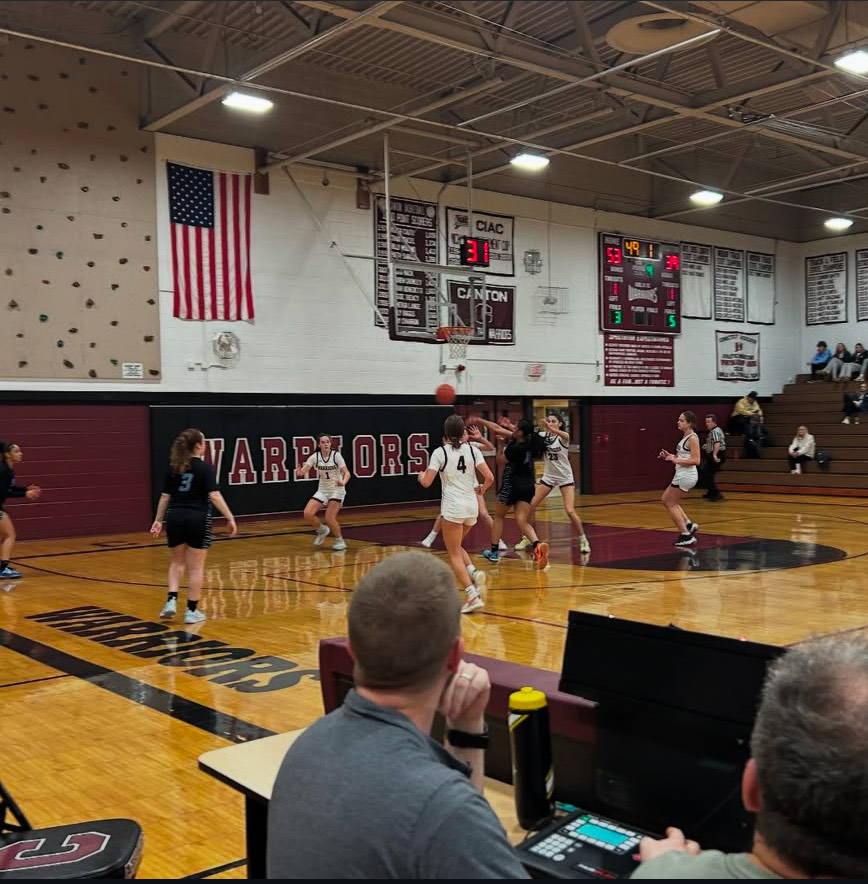BY AMBER HARRADEN
Many of Canton High School’s students take honors or Advanced Placement classes, but there are some students who go above the expectation by taking more than one AP class at the same time. Students can enroll in multiple AP classes without much question, and although they are praised for doing so, some teachers have concern that their students are overworking themselves for the wrong reasons.
This concern arises about some students who take on too much of a workload by signing up for multiple AP classes without knowing the amount of work they are about to encounter. Other students, teachers feel, are stressing themselves out solely because the AP class will look good on their transcript.
Nora Mocarski has been a teacher at Canton High School for 11 years, and has been teaching the AP US History course every year. Mocarski has expressed that her students are “generally” responsible, but that every student is different. She feels that the students’ “guide should be passion” when it comes to choosing their classes, AP level or not. She believes that students should “only be taking courses they are passionate about and willing to work in, ” rather than for how the courses look on a transcript.
Jean Moran, another AP teacher at Canton High School, agrees. Moran believes that some students are making the wrong choices when they sign up for AP classes in more than one subject, rather than just the one that interests them. Moran believes it is acceptable that students take more than one AP class at the same time, “as long as they understand the challenge” and are willing to “treat it like a college level” class.
Teachers of AP classes in the high school hold certain expectations of their students, and often times do not acknowledge the work load their students have from other classes. Teachers of the AP courses drive the class by the curriculum deadlines in May, and the students “rarely have no homework” to complete, explains Mocarski. However, some teachers are willing to work around some of their students’ other AP class assignments, in an attempt to reduce stress. Mocarski is one such teacher, but tells that she must “hear it from the kids” in order to make the changes.
While the students may feel overworked and that the expectations of them are too high, Mocarski expresses that AP students must show a “willingness to work” and be ready to fight for their successes. When kids sign up for the AP courses, they should “know they have to stay focused all year long” says Mocarski, and if they are taking more than one they need to know they will have “limited personal time” throughout the year.
Even with all of this prior knowledge, students are still reporting feeling stressed. Coping with this stress in the wrong ways could lead to further health problems later in life. The amount of stress experienced varies from student to student, depending on the individual’s abilities, and can be prevented by the student knowing and understanding their limits.
Alexandra Ossola from The Atlantic, talks about how students report not having much downtime between their schoolwork and extracurricular activities. Ossola says that the “rigor that these opportunities demand” can come alongside with “an extra cost for the students themselves.” She says there has been a recent study that surveyed students at a handful of high schools, and discovered that almost half of the students are “chronically stressed” from their AP courses.
Also according to Gabby Marx, a high school junior at Baraboo, students need to be able to determine their limits. She says that the stress that comes with AP courses may “not be appropriate for all students” who take them.
As Moran from Canton High School says, “we are very fortunate at Canton” for such a small school, to “have such a wide range of AP offerings” for students.
Categories:
Expectations Lead to Stress in AP Students
April 5, 2017
Life is a balancing act when students are taking multiple AP classes. – photograph from Startup Free Photos
0
Tags:
More to Discover












